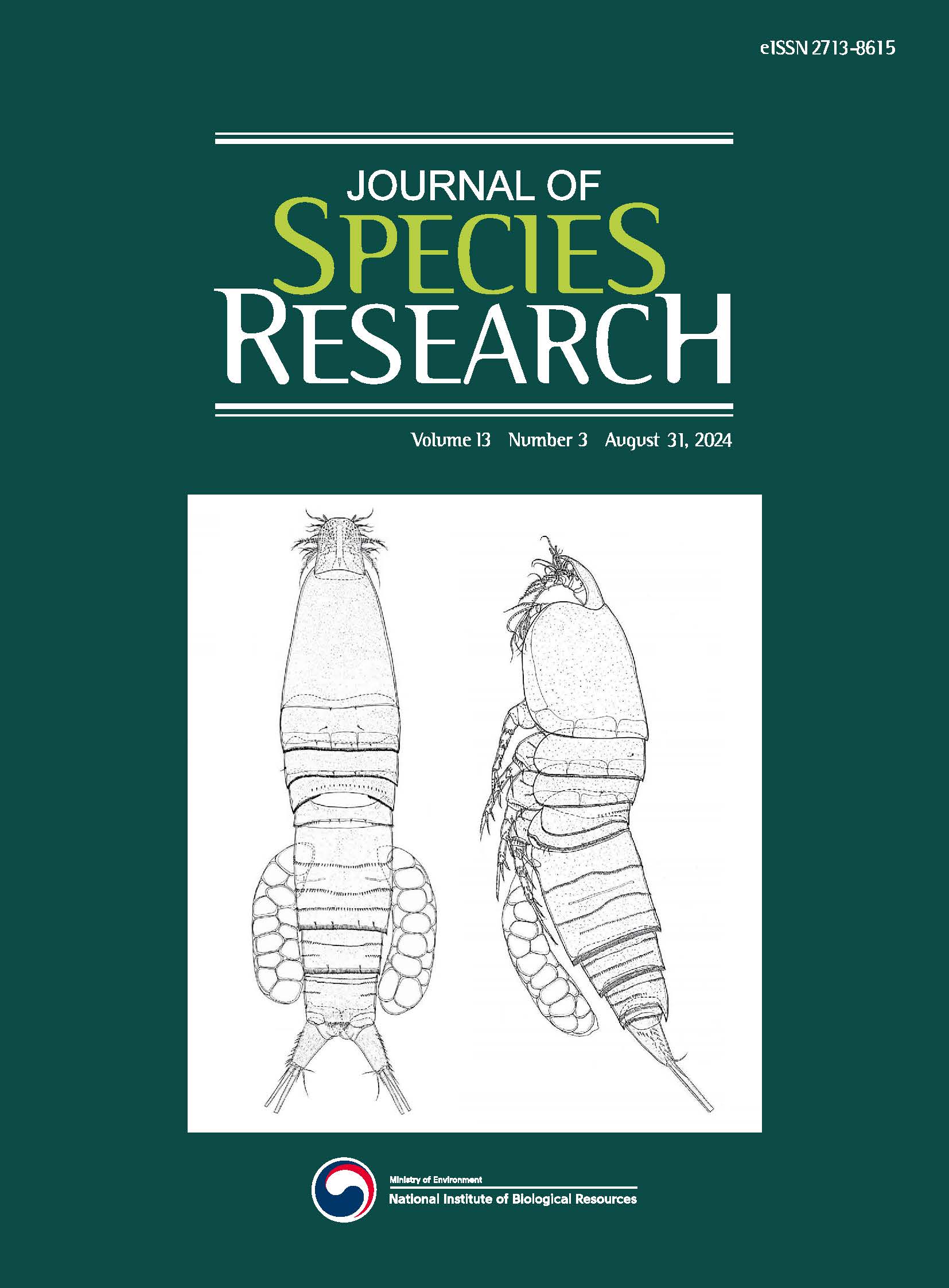- ENGLISH
- E-ISSN2713-8615
- KCI
The impact of meteorological parameters on the biological productivity of mycorrhizal mushrooms in Eastern Siberia
Olga Valentynovna Bondarenko (Irkutsk State Agrarian University, Irkutsk, Russia)
Elena Aleksandrovna Makarova (Irkutsk State Agrarian University, Irkut)
Abstract
The correlation coefficient (r) between the meteorological parameters and the gross biological productivity of the most common mycorrhizal mushrooms was determined. The results can be both of theoretical and practical importance.
- keywords
- correlation, meteorological parameters, mycorrhizal mushrooms, periodicity
참고문헌
Burova, L.G. 1986. The ecology of mushrooms, Moscow (in Russian).
Burova, L.G. 1991. Mysterious world of mushrooms, Moscow (in Russian).
Danilov, D.N. 1949. The geographical arrangement and periodicity of mushrooms biological productivity. J. Bot. 34(2):167-175.
Davydenko, I.A. 1974. About optimal temperature of soil of mass mushrooms fruitification. J. Ecol. 2:75-76.
Matveev, V.A. 1972. The forecast of mushrooms fruitification. J. Mycology and Phytopathology. 6(4):358-360.
Matveev, V.A. 1976. The seasonal development of pileate mushrooms and the meteorological parameters. J. Mycology and Phytopathology. 10(1):13-18.
Muzika, S.M. 2002. The mushrooms of Northern Sayan (structure, ecological peculiarities, resources), Irkutsk (in Russian).
Nanai, E. 1964. About the conditions of kames formation. J. Bot. 49(11):1620-1624.
Ratova, M.R. 2014. Ecological distribution of edible mushrooms in forest plantations of Krasnoyarsk forest-steppe, Krasnoyarsk.:201.
Sennikova, L.S. and A.A. Sennikova. 1984. The productivity of edible mushrooms on the territory of Kirov region. J. Mycology and Phytopathology. 18(6):455-459.
Shubin, V.I. 1990. Macromycetes of forest phytocenoses and their use (in Russian).
Talley, S.M., P.D. Coley and T.A. Kursar. 2002. The effects of weather on fungal abundance and richness among 25 communities in the Intermountain West // BMC Ecology, [Available from: http://www.biomedcentral.com/1472-6785/2/7, accessed 05 September 2014] (in English).
- 다운로드 수
- 조회수
- 0KCI 피인용수
- 0WOS 피인용수


